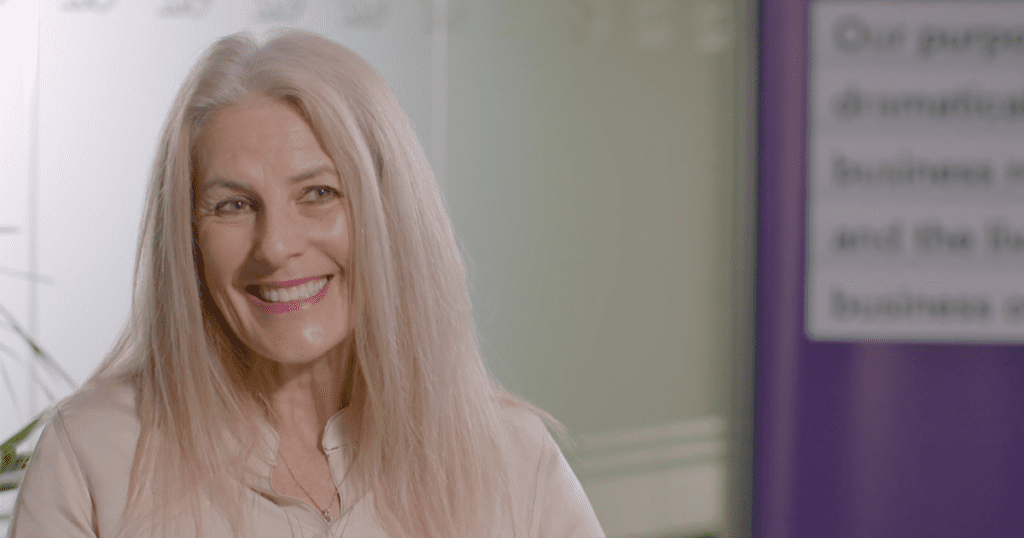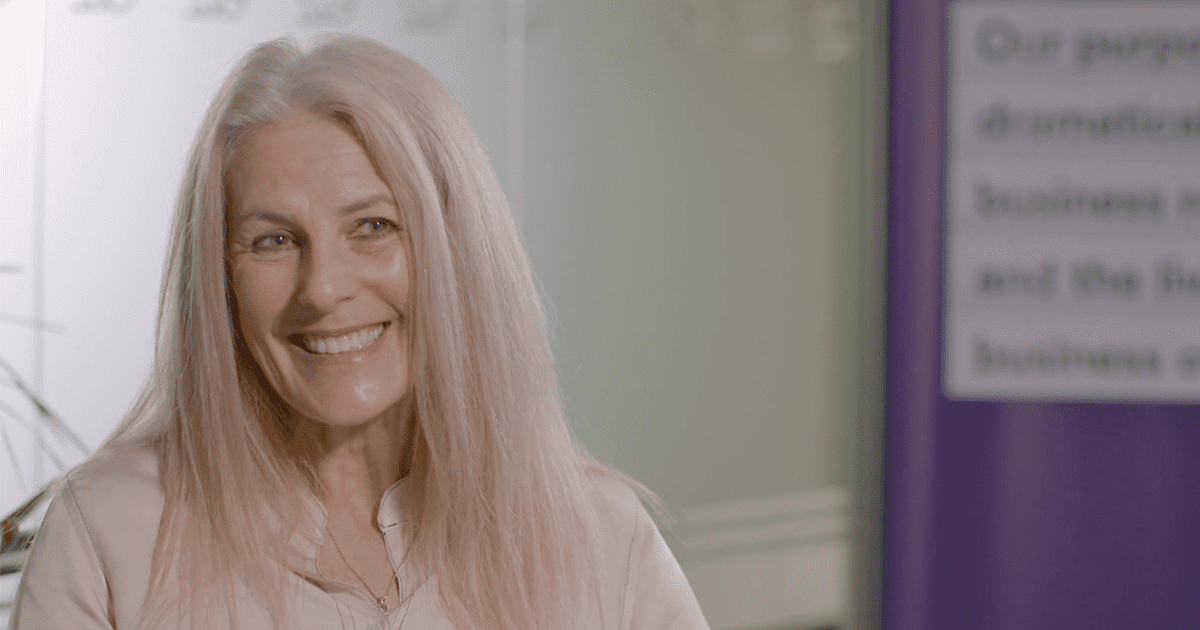Coffee with Ann from Q2 Accountants

Have you ever wanted to sit down with an accountant and discuss topics related to business and provisional tax in depth? We were given the opportunity to do just that with Ann Cooper Smith, the Founder & Chief Executive of Q2 Accountants.
If you don't know who Ann is, she is a chartered accountant with 30 years experience in the public sector. The combination of her personal experience and passion for seeing businesses thrive are what give her a personalised approach to the questions we asked. A handful of those questions are below:
- What are Q2 trying to achieve for its customers?
- What should a business look for in an accountant?
- How does tax pooling provide solutions for your clients?
You will hear how Ann has learned how to use tax pooling creatively for her clients so they can further invest in their businesses while paying their provisional tax.
Take some time today to watch this video as it will give you some framework on how success can be achieved through smart planning.
First year of trading and provisional tax
This is a question we receive a lot. In fact, there is certainly a lot of confusion out there.
As most know, their first year of trading is not tax-free. However, when income tax is due and payable depends on a taxpayer’s residual income tax (RIT) for the year and if they are a ‘new provisional taxpayer’.
So, with that in mind, we explain below how the provisional tax rules work for the 2018 tax year onwards.
First year of trading: RIT is less than $60,000
Any income tax due for the year is due on your terminal tax date.
Interest will apply from this date if a taxpayer does not pay by then.
However, if the RIT is more than $5000 in their first year of trading, they will be a provisional taxpayer for the following year.
First year of trading: RIT is $60,000 or more
IRD may charge interest if you fall into the ‘new provisional taxpayer’ category.
The new provisional taxpayer criteria are different for individuals and companies/trusts.
Individuals are a new provisional taxpayer if:
- Their RIT for that tax year is $60,000 or more
- Their RIT in each of the four previous tax years was $5000 or less; and
- They stopped receiving income from employment and start to receive income from a taxable activity during that tax year.
Companies/trusts are a new provisional taxpayer if:
- Their RIT for that tax year is $60,000 or more
- They did not receive taxable income from a taxable activity in any of the four previous years; and
- They started receiving income from a taxable activity during that tax year.
Please take note the different criteria for individuals and companies/trusts. This catches taxpayers out.
It is important to mention the term ‘taxable activity’ has the same meaning as it does in section 6 Goods and Services Tax Act 1985. However, for the purposes of provisional tax, the exclusion in the Act pertaining to GST-exempt supplies does not apply.
As such, determining if you are a new provisional taxpayer can be tricky in some instances.
From what instalment(s) will IRD charge interest for new provisional taxpayers?
IRD may charge interest (see the current rate here) on the number of provisional tax payments a taxpayer could have made during the first year of trading if you meet the new provisional taxpayer criteria.
Of course, that number depends on the date on which their business starts trading.
For someone with a 31 March balance date, refer to the table below.
| If a taxpayer’s first year of trading starts… | Then the number of provisional tax instalments payable is… |
| Before 29 July | Three (28 Aug, 15 Jan and 7 May) |
| On/after 29 July but before 16 December | Two (15 Jan and 7 May) |
| On 16 December or any time after that | One (7 May) |
These dates will differ if your balance date isn’t 31 March or you file GST returns on a six-monthly basis.
The amount due at each provisional tax instalment
So, what happens if you meet the new provisional taxpayer criteria in your first year of trading?
Well, put simply, IRD will divide your RIT for the year by the number of instalments you were liable to pay per the table above.
For instance, say your business starts trading on 1 October and your RIT for the year was $69,000.
IRD will charge interest from two provisional tax dates: 15 January and 7 May. The amount on which interest will accrue at each date will be $34,500.
On the positive side, late payment penalties will not apply.
Reducing exposure to IRD interest
Taxpayers may wish to make provisional tax payments in their first year of trading to mitigate their exposure to IRD interest if they expect their RIT is going to be $60,000 or more.
If they are an individual or a partner in a partnership and meet certain criteria, they may also get an early payment discount of 6.7 percent on these payments.
TMNZ’s Flexitax lets you reduce the IRD interest cost on the tax owing by a significant amount.
This is done by applying surplus tax paid to IRD on the date it was originally due against your liability. IRD treats this as if you paid on time, eliminating any interest and late payment penalties incurred.
This article has been written in general terms only. You should not rely upon this to provide specific information without also obtaining appropriate professional advice after detailed examination of your situation.
Prodigy Hair Industry cuts tax stress

Krystle Walker from Prodigy Hair Industry loves cutting and styling hair. She does not love provisional tax.
That’s why she utilises the service of TMNZ. They cut away the stress this causes her so she can focus on running and improving her salon.
But more on that in the coming paragraphs. First, some background information.
The Prodigy Hair Industry story
Krystle is the owner and manager of Prodigy Hair Industry. It's in Upper Hutt, a city about 30 minutes outside of Wellington.
She has been plying her trade as a hairdresser for 12 years. Four of those have been at Prodigy Hair Industry.
It’s a stylish set-up she’s got on Fergusson Drive. (Yours Truly loved the décor.)
Things are humming nicely at Prodigy Hair Industry too. Seven staff on the books and a good customer base are a testament to that.

The challenges of being a business owner
Krystle is still wearing her training wheels in term of running her own business.
As she is discovering, transitioning from employee to employer is not without its challenges. There are wages to pay and hair products to purchase, among other things. Cashflow is a biggie.
Provisional tax is another challenge.
Krystle admits she is not a tax geek. Without being disrespectful, you get the sense the intricacies of tax probably do her head in. In fact, in an ideal world it would probably be something she would not have to concern herself with.
But alas, this is not an ideal world. She knows there is no escaping the clutches of the taxman. Falling out with IRD has serious repercussions too.
Taking care of provisional tax so she can take care of business
Krystle avoids any such precarious situations with TMNZ.
Her provisional tax payment plan means her tax is taken care of. She makes payments when her business cashflow permits and TMNZ applies these to the correct tax dates.
No need to worry about late payment penalties. There is interest to pay. However, this is much lower than the 8.22 percent IRD currently charges when someone doesn't pay tax on time.
“It does reduce the stress month to month. Knowing that you have got my back, I don’t have to worry about that,” she says.
It allows Krystle to get on with doing what she does best – cutting and styling hair and making sure Prodigy Hair Industry is satisfying its customers’ needs.

“I can put 100 percent into the business and my staff.”
The concept of paying provisional tax through TMNZ was about as familiar as the Klingon dialect when her accountant first broached the idea.
But after hearing how it operates with the blessing of IRD, Krystle says it was too good to pass up.
Now she has no qualms about recommending TMNZ to others occupying a similar waka to Prodigy Hair Industry.
“It’s great, especially for small business owners.
“It just gives me the confidence with my day-to-day cashflow.”
Watch the video below to hear from Krystal about how tax pooling has provided her freedom to focus on her business, not provisional tax.
TMNZ is New Zealand’s first and largest tax pooling provider. It offers provisional tax payment plans for business of all sizes.


